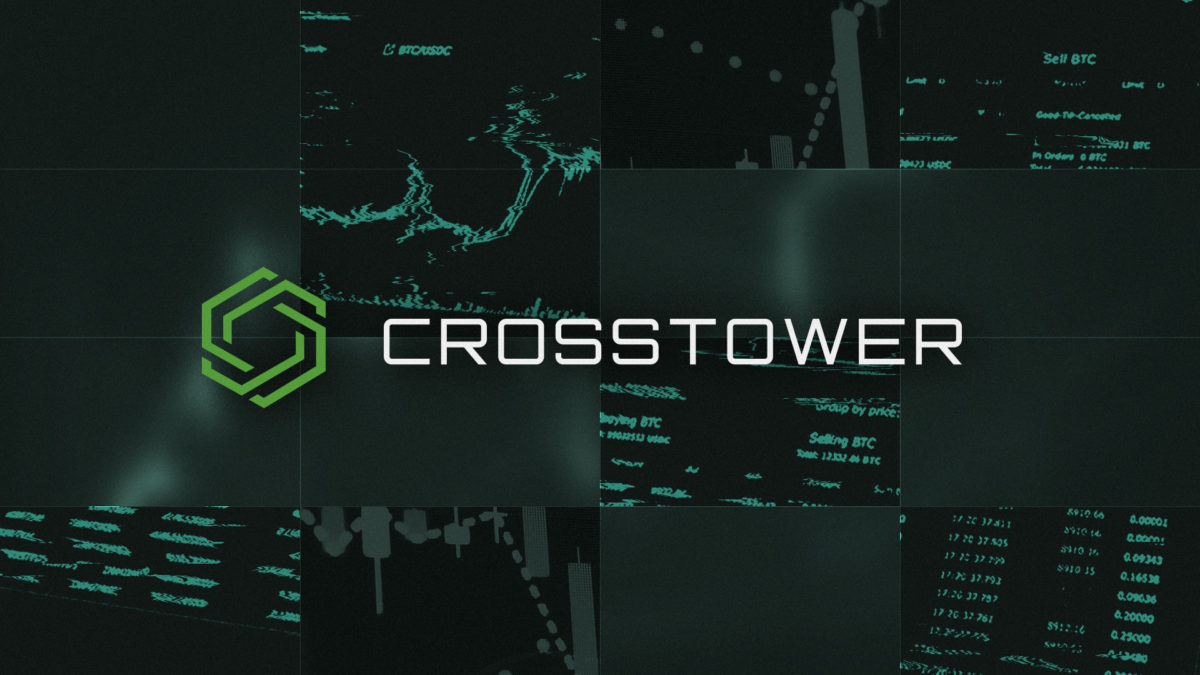Crypto exchange launched by former AlphaPoint execs turns pricing model on its head with taker rebates

Quick Take
- Two veterans from the traditional exchange world are spearheading the launch of a new digital asset marketplace
- CrossTower — led by co-founders Kapil Rathi and Kristin Boggiano — join the ranks of exchange operators catering to the decidedly institutional crowd

Two veterans from the traditional finance world are spearheading the launch of a new digital asset marketplace.
CrossTower — led by co-founders Kapil Rathi and Kristin Boggiano — join the ranks of exchange operators catering to the decidedly institutional crowd. Rathi previously held senior roles at Cboe, Bats, ISE and the NYSE. Boggiano, who served stints at the CFTC and the SEC, worked for Schulte Roth and Guggenheim Partners. Both Rathi and Boggiano worked for AlphaPoint, which develops white-label exchange software, serving as chief operating officer and chief legal officer, respectively.
CrossTower, which operates out of Jersey City, began its "controlled launch" in April, according to a press statement shared with The Block, with trading extended to a small group of individual users as well as participating firms. The cryptocurrencies available at launch include bitcoin, ether, zcash, litecoin and bitcoin cash.
Speaking with The Block, Boggiano touched on an oft-discussed subject in the crypto market space today: the degree of interest among institutional investors. Boggiano posited that "[t]here are many indications the institutional players have been entering and are going to continue to enter this market."
"And it's not just your typical high-net-worth individuals," she remarked. "We're seeing significant open interest at the CME. It's generally not individuals that trade on the CME; it's institutions. Institutions trading wheat and oil, for example, are moving into crypto futures. We are seeing an institutional shift in my opinion, as indicated by the numbers being printed."
In conversation, Boggiano contended that the firm can competitively offer "a robust platform where market makers can feel comfortable offering tight liquidity."
The Block Research recently examined how the space for institutional offerings has evolved in the past several years. To date, some $2.1 billion has been allocated to firms that cater to institutions.
Crowded space
The launch of CrossTower comes at a time when other venues are looking to ramp up their institutional offerings. At Coinbase, the exchange recently announced it brought on a Barclays executive to entice Wall Street into doing business with the San Francisco firm.
Meanwhile, ErisX recently enhanced its block trading capabilities. Blockchain.com rebranded its exchange, which claimed to be the fastest in the ecosystem when it launched, to Blockchain Exchange at the beginning of the year.
RELATED INDICES
CrossTower plans to differentiate itself from market competitors by offering a novel fee schedule — for the crypto market, at least. Typically, exchange venues will incentivize market makers with rebates to add liquidity to the venue. In CrossTower's case, the firm will pay takers to trade.
The maker/taker model for trading has long been debated on Wall Street. The pricing structure pays transactional rebates to market makers and charges traders that take liquidity, market takers. Most crypto exchanges charge both makers and takers to trade, but there are a few exceptions, including Paxos, which offers rebates to makers.
"The cost for retail to trade digital assets is very high and we want to incentivize retail customers to trade with testing liquidity," Boggiano said.
The high-cost of trading for retail customers has been well-documented by The Block Research.

As for CrossTower, the taker rebates will be available to all customer types, Boggiano said.
The firm said it has lined up a number of liquidity providers and market makers — which have been attracted to the firm's risk controls — to compliment robust retail flow.
"Market makers are looking for exchanges with proper risk controls so they aren't picked off during volatile markets," Rathi said. "That helps increase a market maker's confidence and encourages deep liquidity. Out of the gate, we've secured market makers. We have spreads that are tight, and books that are deep."
© 2023 The Block. All Rights Reserved. This article is provided for informational purposes only. It is not offered or intended to be used as legal, tax, investment, financial, or other advice.





